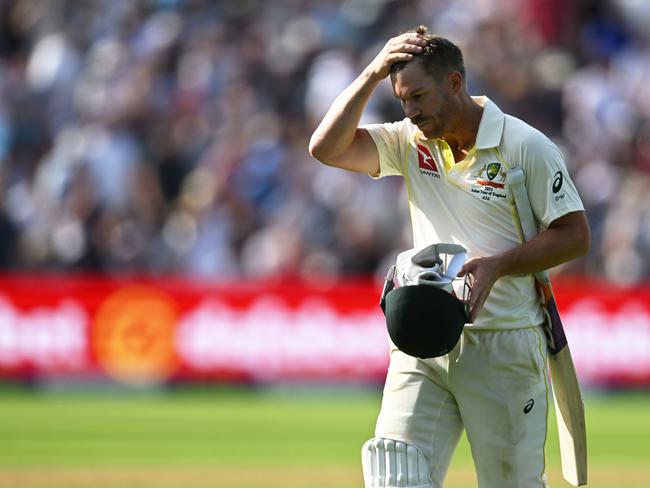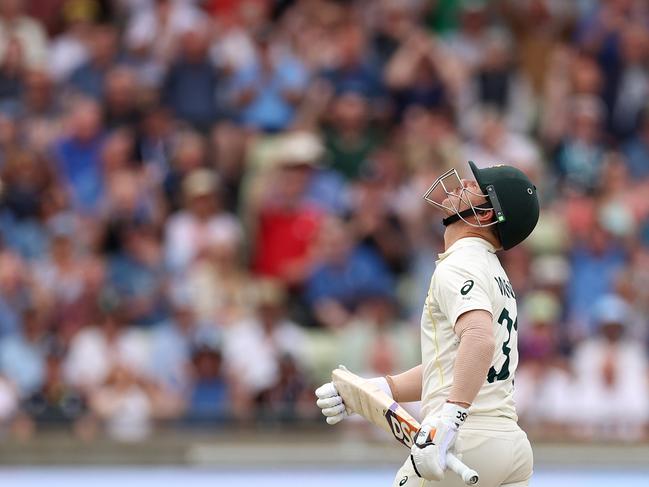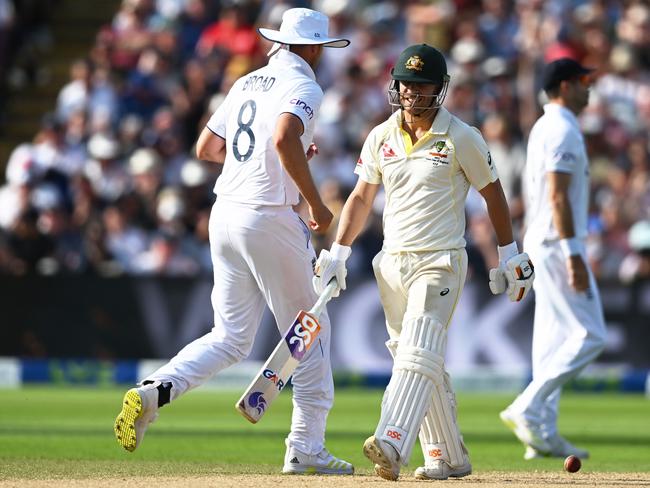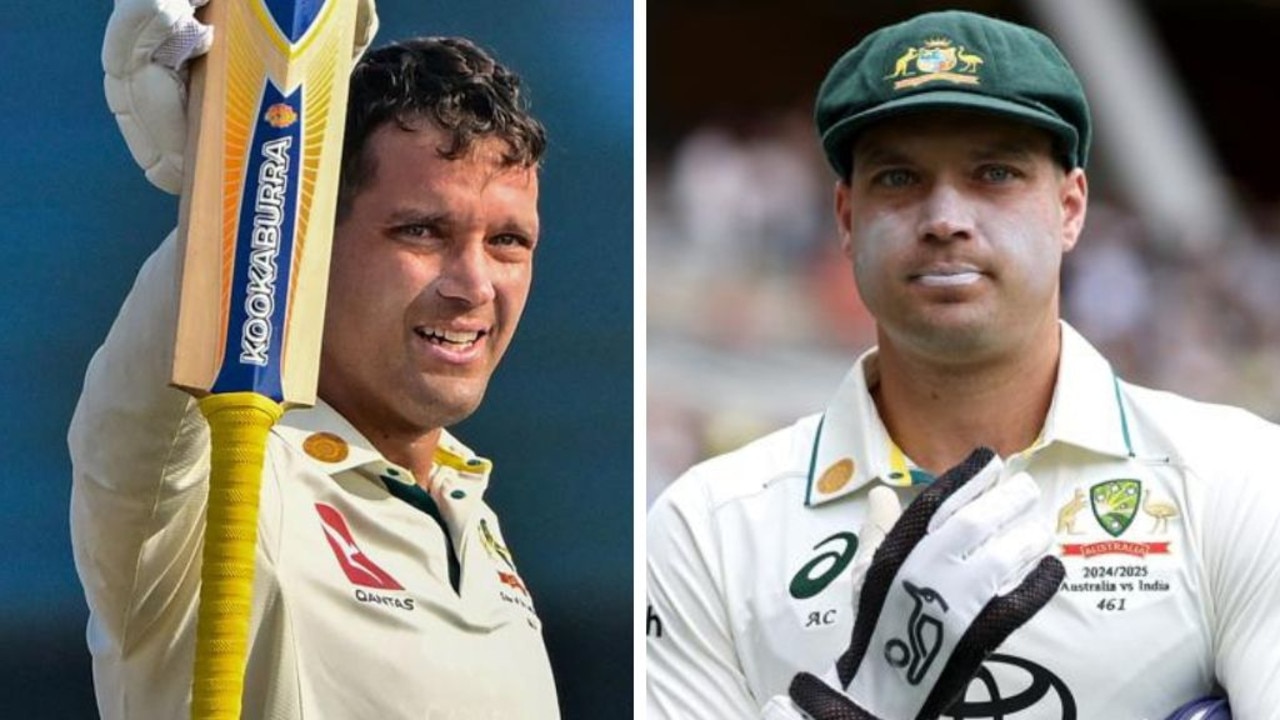Australian opener David Warner is difficult to drop despite struggles in England
David Warner’s struggles in England are no secret, but an astute move ahead of the Ashes series makes it hard to drop the Australian opener writes SIMON WILDE.

Cricket
Don't miss out on the headlines from Cricket. Followed categories will be added to My News.
It’s probably fair to say that David Warner does not like coming to England, and England does not like him.
He has been playing international cricket here since 2009 and has rarely had much success. His only three centuries on English soil all came in the World Cup four years ago, but Australia were then dumped out of the tournament at the semi-final stage by England, and we all know how the Ashes series that followed went for him. Stuart Broad bowled, Warner bowed.
That was Warner’s first visit since his 12-month ban for orchestrating the ball-tampering scandal in Cape Town and he became the target for relentless abuse from the terraces. Warner tried to take it in good part by occasionally pulling out his empty pockets to show they were clean of abrasive materials, but, frankly, what else could he do?
The refrain “Same old Aussies, always cheating” has been heard at English grounds ever since, whenever the Australians appeal for a leg-before decision, a catch or a run out, or a DRS verdict goes against them. The mockery of opposing fans is nothing new in sport, but an England tour is now a particularly acute ordeal for an Australian cricketer.

During the first Test, the wicketkeeper Alex Carey, who had not played an Ashes match here before, expressed gratitude that he did not have to field on the boundary, where he may be singled out for treatment by the hecklers — as Travis Head was, among others. Had “Sandpapergate” never happened, life would be a lot easier for the entire team.
Even before his downfall in Cape Town, Warner was out of favour with English supporters as a result of a punch he landed on Joe Root at 2.30am in a bar in Birmingham during a Champions Trophy tournament in 2013. That incident, coupled with an expletive-ridden tirade at journalists, led to Warner missing the start of that year’s Ashes series and being for ever cast in the minds of many as a “bad ‘un”.
It is telling that while many county clubs have been prepared to make themselves unpopular by signing Australians, and thereby giving them useful practice in English conditions, none have opted to recruit Warner since he played T20s for Middlesex in 2010. He signed for Southern Brave in the Hundred two years ago but withdrew, citing Covid-19 complications.
Warner’s portrayal by English supporters as a pantomime villain actually draws focus away from far more intriguing relationships with his teammates and his bosses at Cricket Australia.
While the ball-tampering in South Africa led to suspensions for Warner, Steve Smith and Cameron Bancroft, there was general scepticism that others in the team could have been ignorant of what went on, particularly those members of the attack for whom the ball’s condition is fundamental to their work. How could they not know? Cricket Australia cleared them of culpability.
Some of those bowlers, who remain in the team today, are thought to have not forgiven Warner for what happened, and the impact it had on their reputations. It is rumoured that some barely speak to him to this day.
As his runs have dried up in recent times, Warner’s presence in the Australia Test team has been the subject of frequent debate. Since January 2021, he has managed only one century in 21 Tests, and his place on this Ashes tour was far from certain.

The likelihood of him being confronted by Broad with the new ball contributed to a good deal of wavering from the selectors, whose decision to name a tour party only up to the end of next week’s Lord’s Test was specifically taken to give them the option to pull him out if he started badly.
In theory, therefore, it is possible that Lord’s may be his last Test, but while he scored only 45 runs in his two innings at Edgbaston, and was again dismissed by Broad in the first of them, his game looked in reasonable shape. It is also pretty clear that this series is not going to be played on the same kind of nibbly surfaces that made life so hard in the 2019 series, when only one hundred was scored by a top-three batsman on either side.
Warner would probably have to be out for single figures in both innings and Australia to lose for his tour spot to be seriously discussed.
No sooner had Warner begun the tour than he revealed he intended to quit Test cricket after next winter’s new year match in his home city of Sydney. On a political level this was an astute move, because it meant that were the selectors to wield the axe before then they risked treating ungraciously the second-most prolific opening batsman Australia have ever had.
In all probability, Cricket Australia has been in no rush to see Warner out of the door. It is widely expected that when he does retire he will write an autobiography that could possibly reveal who really knew what happened in Cape Town and that Warner paid for the sins of others as well as his own. No one in Australia would want that sort of book coming out during an Ashes tour. The longer publication is delayed the better.
Originally published as Australian opener David Warner is difficult to drop despite struggles in England


